CoderDojo is just one of the many inspiring, but vital projects, philanthropist, Bill Liao has spearheaded over his expansive career and each one exists to provide solutions to significant problems that face the modern world. The large scale sustainable reforestation project known as WeForest is a non-profit organisation that aims to protect the environment’s forestry, InHoming is a pioneering plan to match up homeless families with aging people who are alone and place them in the same house to help solve two significant social issues, and IndieBio is a Synthetic Biology accelerator program helping to build and fund startups that are focused on solving life’s biological issues.
CoderDojo is a project just as impactful for future generations. Coding is something that has now become imperative for children to understand and learn but it still doesn’t exist on the school syllabus. Bill Liao, after meeting young coder, James Whelton, decided to set up CoderDojo, an organisation to allow children to create code in fun and inspiring surroundings, but the best part is, it is absolutely free. It has been four years since the first Dojo was established in Ireland but CoderDojo now exists all around the world, providing children with a crucial language skill that will help serve the future.
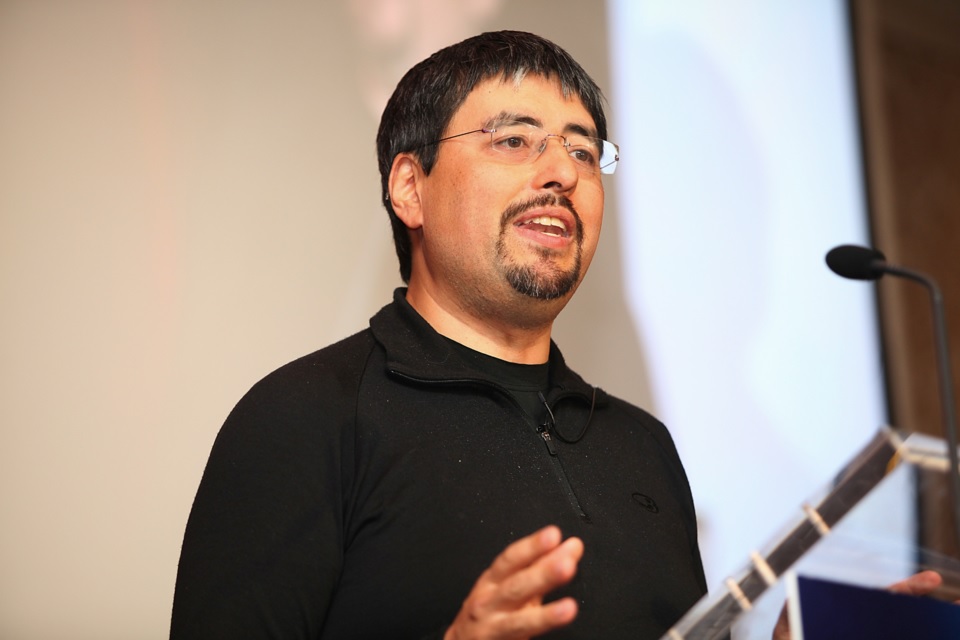
Could you firstly explain the initiative behind CoderDojo and what drew you to a project of this kind?
Bill Liao: As a venture capitalist, I have a huge amount of people come up to me who want to create a tech startup and they will have a marketer, a CEO with business experience, perhaps a CFO and the idea to build a tech product, but they will have no engineers. That team dynamic is like starting a gourmet restaurant without a chef. You need coders to build and it puzzled me why so many people were having so many problems finding engineers. Then this young man called James Whelton came to me with his tech startup and so I asked how many engineers he had (expecting zero) and he said, “Three, including myself.” I was surprised that someone at 18 years old, who had just left school, had a team which included three full-time engineers. He told me that he had taught them after winning a web award some years back and the principal at his school congratulated him over the PA system. From there, students began to ask him questions including if he was able to teach them what he could do. I assumed he was really proud of that but instead he admitted he was sad because after finishing his leaving certificate the club was shut down. The reason was that no one in the school could take over. It was a shock to discover that not one faculty member, in one of the best schools in Ireland, had the skills to teach coding. That’s the moment when all the dots joined in my brain and I wanted to help solve the coding problem.
 In the Photo :Lucy Toal, Katie Donnelly, and Niamh Campbell from Enniskillen with their project The Gabbler at The CoderDojo Coolest Projects Awards in Dublin. Photo Credit: Flickr/Conor McCabe Photography
In the Photo :Lucy Toal, Katie Donnelly, and Niamh Campbell from Enniskillen with their project The Gabbler at The CoderDojo Coolest Projects Awards in Dublin. Photo Credit: Flickr/Conor McCabe Photography
What were your initial steps in starting CoderDojo?
B.L: I started ringing around to see how many schools and education systems actually had coding on the syllabus and the answer I found: none! Not anywhere! In order to become a native speaker you have to learn a language really young and if coding isn’t on the syllabus, how can children become future coders? So I then looked at how much it would cost to outfit schools with sufficiently talented staff in order to effectively put it on the school syllabus and I found, in Ireland alone, it would cost billions. This is because coders are the most expensive, sought after people on the planet. You can’t learn code from just anybody. Code is creative language with an economy of expression and that is poetry. Neat, tightly packed meaningful code is simply poetry. So this means the best coders are poets and in order to become a poet in any language you have to be a native speaker. I realised it was impossible to do it with the school system so I looked to find a space for James to reinstate a coding club. I called the National Software Centre in Cork and two weeks later we had our space that could be used every Saturday.
We created 127 Dojos in 28 countries without even opening a bank account
We ran for several months and began to trial different formats and styles; we had artists come in just to try and figure out what was best for this club and after a while it took off. Four years down the line we have Dojos in 68 countries in nearly 1000 locations and it’s growing continually. James and I made a philosophical decision at the start: to make sure it was all-inclusive. As soon as you start charging for something you create an inequality so we, therefore, agreed to make it free, completely free and there’s a huge amount of equality there because of that. We created 127 Dojos in 28 countries without even opening a bank account. However, we have built a small foundation that now desperately needs money because, in effect, we are now trying to support a global movement that’s growing like a weed.
How does CoderDojo help diminish the gender gap in coding and promote the learning of technology to girls and young women?
B.L: This aspect of the project took me a long time to figure out. In the first instance, there were two intractable problems, one: the industry didn’t have enough coders and two: children weren’t learning to code. So we made all of the Dojos in industry spaces and we got mentors from industry to actually turn those two intractable problems into a reciprocal solution. However, the nature of our reciprocal solution meant that most of the mentors were skilled coders in an almost entirely male-dominated field, which therefore gave us mostly men. I discovered that whilst girls would show up to CoderDojos they did not stick around and for about 2 months, I only had 2 girls in a Dojo of 100 children. So I tried everything that people said you ought to do in this kind of situation. The first thing they say is that you should talk about creativity rather than engineering, so we did that but to no effect. Secondly, they say to try to engage the parents more and so we did that, but, again, with no effect. The third thing they advise is to find female role models and, so, I managed to find female coders to lead Dojo sessions, but having women in these roles only had a mild effect.
Then one day another idea came to me when looking at the work of a girl named Tanya who was becoming very good at learning to code, so I simply told her, “You’re now a mentor for the newbies!” It was Tanya and Tanya alone who was to lead the latest editions to the Dojo. Within 6 months we had close to 50/50 gender balance and peer role modelling was the answer. It is not an easy method because you have to find those girls who are tough enough to stay but once they have developed some skills they flourish in leadership roles. That technique has worked across the world and recent research has even suggested that girls are better coders.
Related Articles: “TEACHING GIRLS TO CODE IN STYLE: JEWELBOTS“
Do you think it is important for all young people to be introduced to coding and website development?
B.L: I think that every child should have the opportunity to learn to code. If every child goes to a Dojo for an hour and writes a single line of HTML that works, they will never be afraid of a computer again. I also think that the majority of adults today are afraid of computers and have anxiety around them because they don’t know how they work, but computer coding is now the most universal human language; it should almost be a right to learn languages, particularly computer based languages. The format for learning those languages is really unstructured, you just have to start doing it, it’s not about sitting there patiently watching someone write something on a blackboard. The best environment for learning is where you are together with other humans in a creative and fun space and have things around to inspire you. I think the second best is self-paced video tutorials because at least you can pause them. Every other form of learning pales into insignificance compared to these two methods.
The opportunity for learning and learning for free should spread.
Could you explain the word Dojo and how Dojos aim to quash fears of learning?
B.L: Dojo is a Japanese word meaning temple adjunct or temple of learning and it applies to all martial arts. I used the word Dojo because coding is also about physical learning, a temple of learning and you’re expected to pass on what you learn just like you would in martial arts. In my Dojo, I even give out belts in the form of coloured USB wristbands. These days most children are not afraid to learn to code, they just don’t have access. I think most children know they are not being given all the information because they can see the apps and the tablet do things and if they are given the opportunity to add something, they will happily do it. We take technology for granted, it is designed to be easy for us but we’re unaware of how it actually works. The Dojos exist to educate children about the technology they use.
 In the Photo: The first Docklands Dojo, March 2015. Photo Credit: Flickr/Marie Greene
In the Photo: The first Docklands Dojo, March 2015. Photo Credit: Flickr/Marie Greene
Do you plan to grow the project even further in the future and how do you see it expanding?
B.L: My short term vision is that CoderDojo becomes as common as scouting groups used to be. I am a big fan of Scouts and creating things in nature, but I am also a big fan of indoor technology and that requires creativity, too. In the long term, I’d like to see other things learned in the same proven format as the Dojos. The opportunity for learning and learning for free should spread. We are doing everything we can to step up the growth and the visibility of CoderDojo so that every child has this opportunity to learn how to code. We are also bringing out our first coding book where every line of code has actually been tested by children. We have learning tools called Dojo sushi which are little single card lessons that a child can use within the Dojos. We decided to collect all these cards to create a book (CoderDojo: My First Website (CoderDojo Nano) ) and due to be published this year by Egmont.
How do Dojos work to remain accessible and a permanent foundation to all you people?
B.L: The accessibility was baked in from the start: anyone can start a Dojo, anyone can run a Dojo; the format of the Dojo is, therefore, self-organising. Some Dojos, unfortunately, don’t make it but that’s actually a very good quality control system. Beyond that, the CoderDojo foundation is working to provide better infrastructure, such as more content and free ticketing systems but it does need support in order to continue.
To find out more about the CoderDojo Foundation visit: https://coderdojo.com/ or Tweet Bill Liao: @liaonet
CoderDojo: My First Website (CoderDojo Nano) is now available to pre-order: http://buff.ly/1SmYqAk
Cover: Matthew Reid from Sandymount, Eibhlin, and Cillian McDonough from Killaloe at Coolest Projects Launch 2015. Photo Credit: Flickr/Conor McCabe Photography.


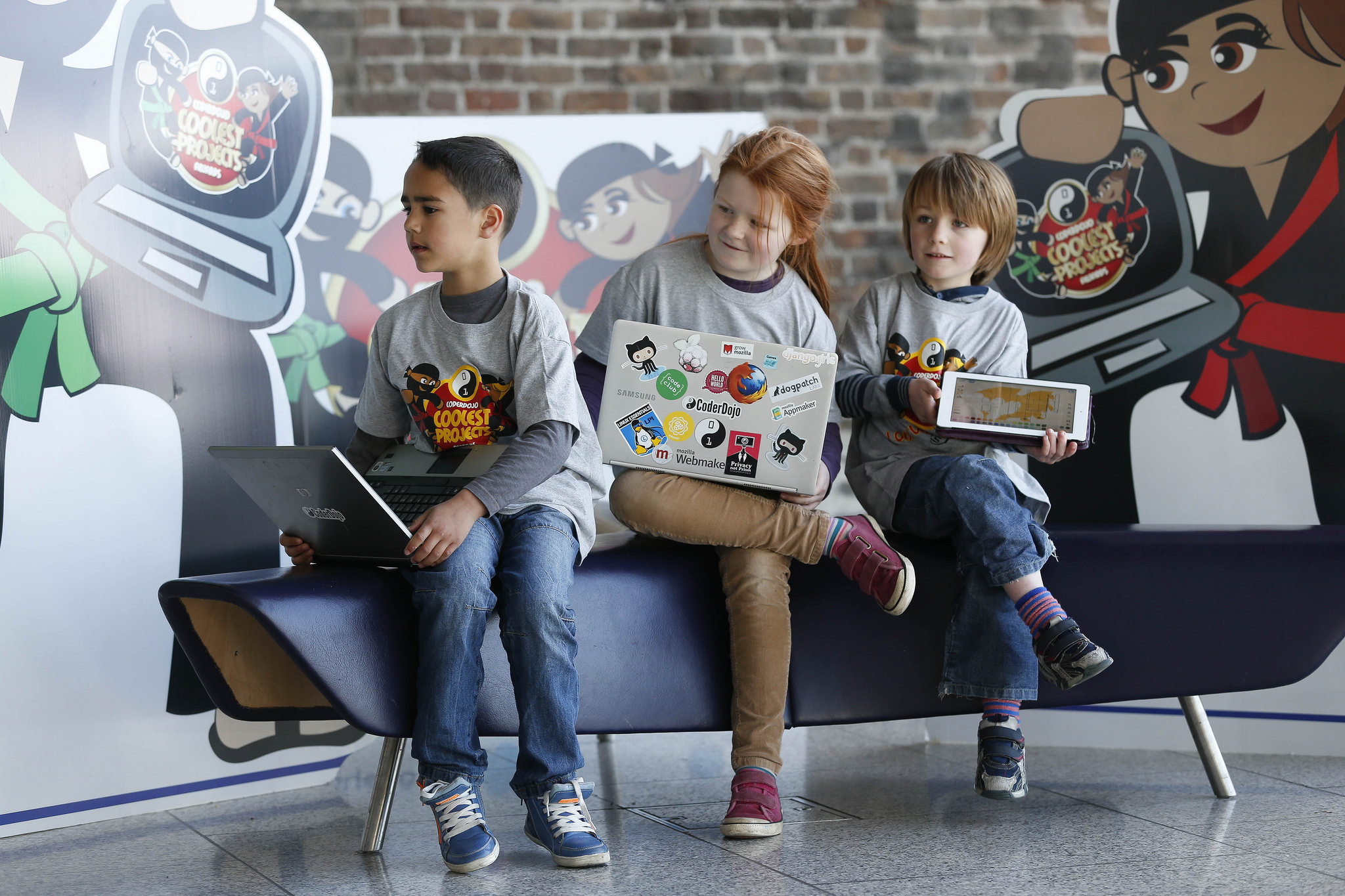
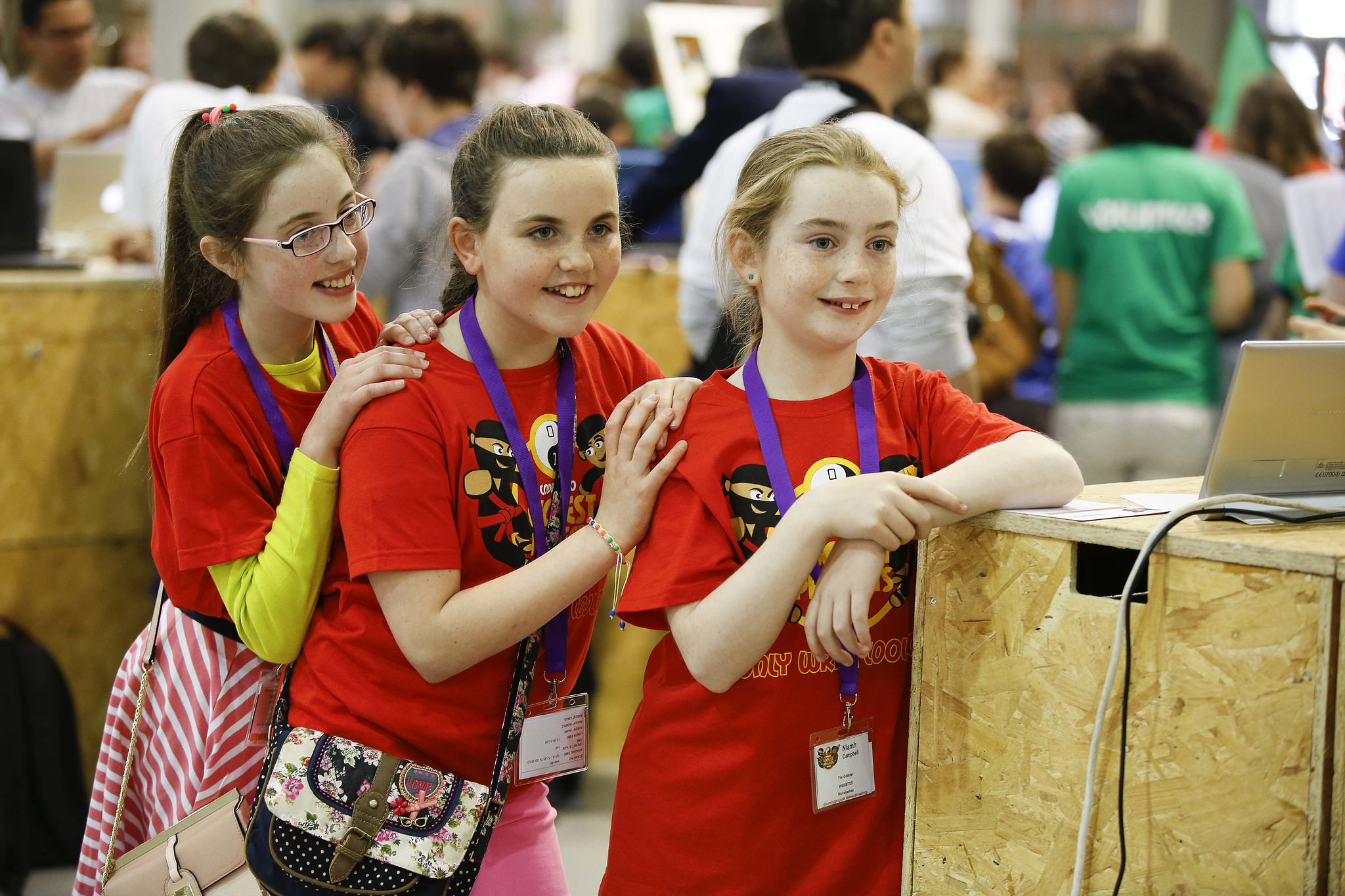 In the Photo
In the Photo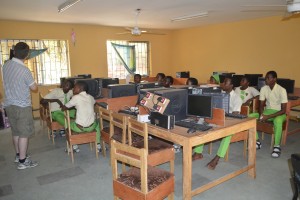
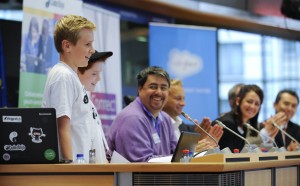
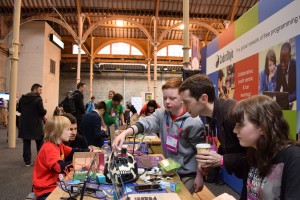
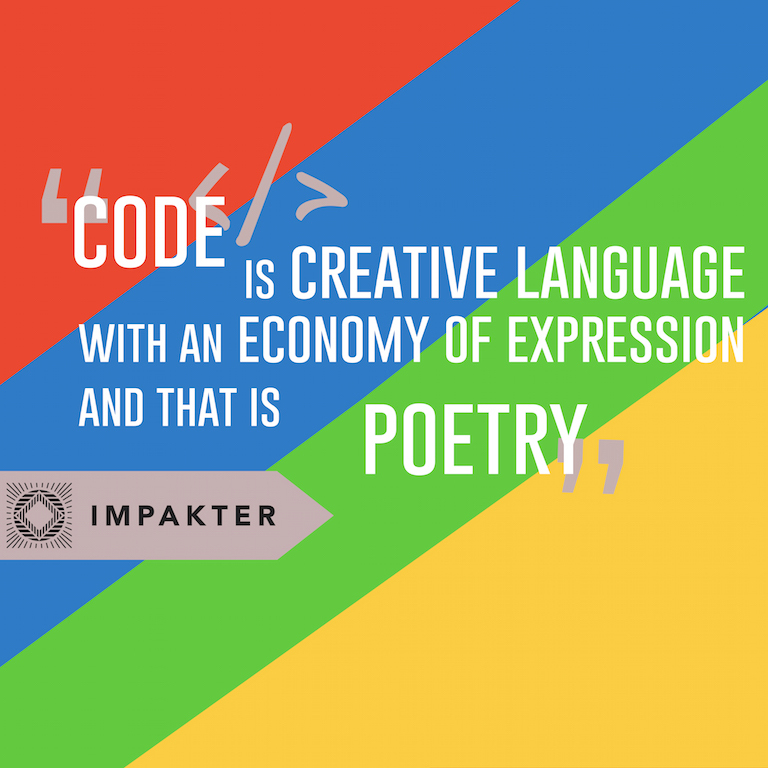
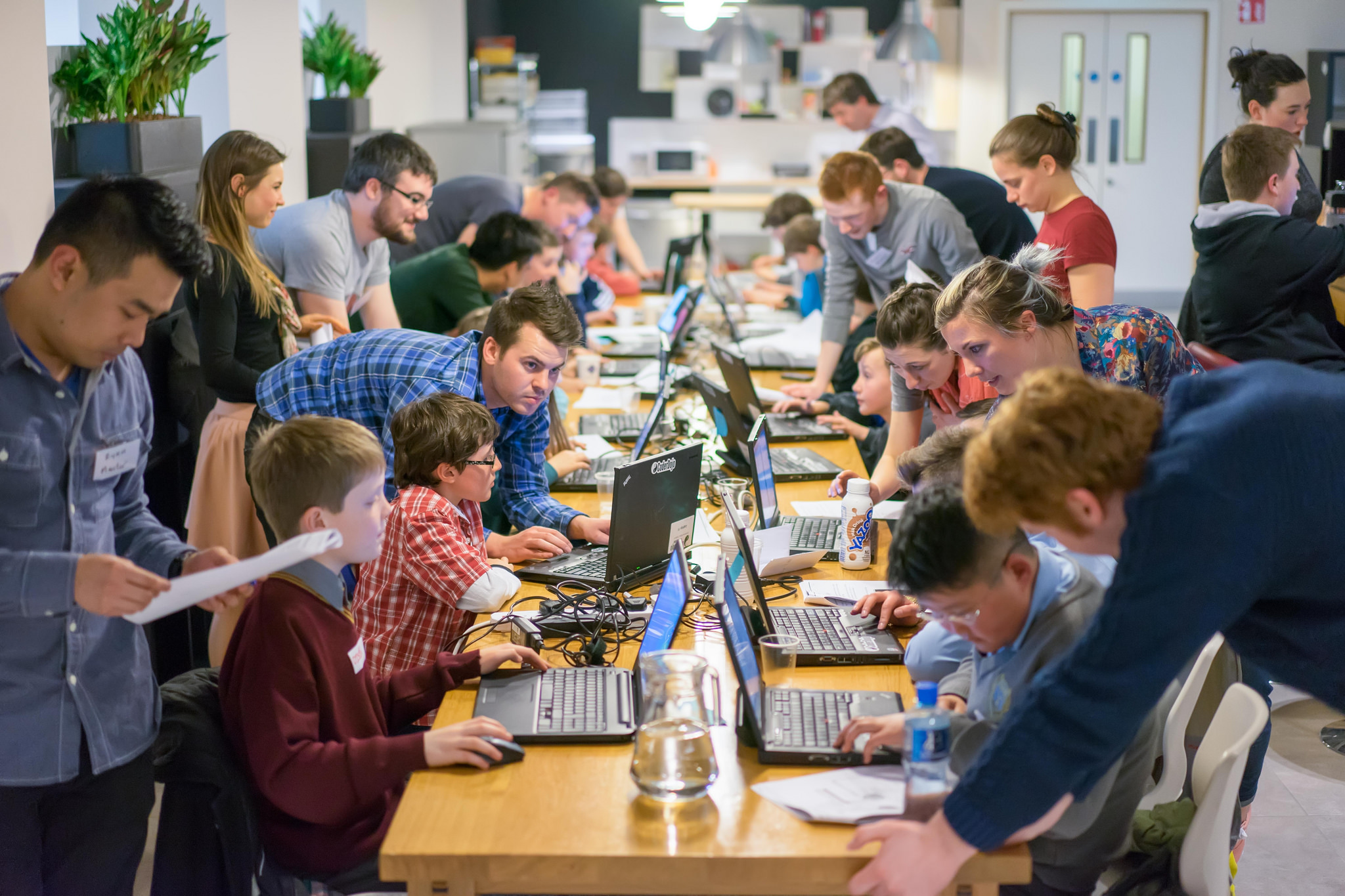 In the Photo: The first Docklands Dojo, March 2015. Photo Credit: Flickr/Marie Greene
In the Photo: The first Docklands Dojo, March 2015. Photo Credit: Flickr/Marie Greene






